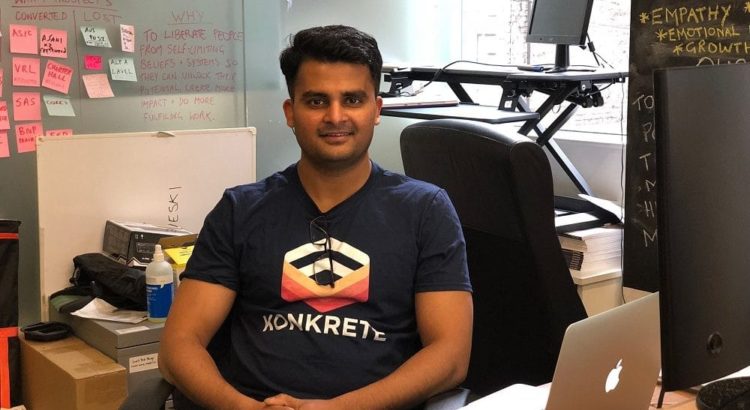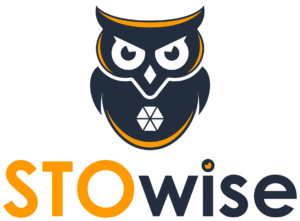
Moresh Kokane is the Founder of Konkrete, he has worked in the finance and tech sector for the last decade and previously successfully launched two start-ups.
In 2014 you launched Estate Baron, one of the first real estate development crowdfunding companies in Australia. What inspired you to combine real estate with crowdfunding?
I had worked in the US for about 9 years before moving to Australia. I had already seen the rise of Realty Mogul and Fundrise in the US. Australians are far more in love with real estate than the US with each Australian being 3 times more likely to be invested in real estate than an American.
Real estate being a lumpy asset is an ideal fit for crowdfunding which allows people with smaller amounts to participate. Doing real estate equity crowdfunding in Australia was really a no brainer.
When it comes to Estate Baron, are profits derived from the developer or the investor? Could you share some details on the profit model?
We provide 3 key services.
- Given that it is a securities offering, we help structure the offer documents. What we have been able to achieve is a commoditization of the process. Real estate projects fundamentally share the same lifecycle. Acquire land, decide what to build on it (plans), construct and sell (or hold for long term). Doing a full retail securities offering can be quite tedious but given the repetitive nature of the business model, we were able to come up with templates which allowed us to drive the cost of compliance down significantly.
- We also turned our tech into a SAAS platform, whereby each developer can use their own front-end skin on top of our backend. This allows them to promote their own offers under their own brand to their clients. On Estate Baron itself we can list all the offers as a quasi-aggregator.
- And we also offer investor promotions for select offers.
There is a flat fee for the drafts, a recurring charge for the tech and a % of funds raised capital raising fee.
It seems that Konkrete was a natural evolution of Estate Baron as it offers a distributed share registry designed for the real estate sector. For readers who are unfamiliar with this, could you explain what a distributed share registry is, and the benefits it provides investors and developers?
Konkrete is fundamentally Estate Baron v2.0
On Estate Baron we had a full investor portal where we had online application processing, project information pages, share registry, investor updates etc.
We are keeping 100% of the retail financial licensing and compliance from Estate Baron, bulk of the tech and swapping out the backend centralized share registry with a distributed one.
Each offer is typically setup as a Public unlisted company and legally maintains its own registry. A registry as you know is a record of all the shareholders, how much they own, etc. Typically, these are maintained centrally.
Using a blockchain enabled registry has a few significant advantages. The first is transparency, it also brings a wider reach of investors on the global crypto markets and it makes liquidity simpler.
But what we are really excited about is smart securities. By putting the investment operations on the blockchain we can give investors real time insights on how the money is being spent. Instead of sending money to a bank account, we can receive stable coins in a smart contract wallet. And instead of bank loan drawdowns we can trigger funds release automatically based on certain events triggered by Oracles.
What it means for the project is real time, automatic disclosure which reduces cost of ongoing compliance. And by introducing transparency and immutability to the operations we can generate a lot of trust in the ecosystem. Coupled with a wider reach and liquidity this drives down the cost of capital for the venture.
Note that while we are focused on real estate, the underlying legal structures and technology can be used for any other ventures which are unrelated to real estate as well.
One of the stated benefits of Konkrete, is reducing the housing affordability crisis, could you walk us through how this works?
Konkrete being an evolution of Estate Baron aims to do something about housing affordability. We intend to make home ownership affordable through 2 main approaches.
The first is fractional ownership of the house you live in. Instead of buying the entire house and loading up on debt, if we can allow people to live long term in a house that they co-own alongside other investors that reduces the upfront outlay a buyer must make. It also gives investors the opportunity to buy a piece of real estate by not having to stump the entire amount.
Second is the supply side. House sticker prices include a hefty development profit. If we can get people to do co-development for the houses they wish to live then the development profit can be passed back to them. This model is already quite popular in Berlin, Germany and these syndicates, collectives are springing up in Melbourne as well.
By bringing together more people online and allowing them to achieve consensus in a decentralized fashion, we can replace the developer.
Finally, we are working on a real estate backed stable coin as our long term moonshot. That is something we always keep one eye on.
What are some of the different solutions and products that Konkrete will be offering?
We continue to offer fundraising solutions for real estate projects. The same model can be applied for non-real estate fundraising as well (Public company and prospectus). We have already done offers in Australia, New Zealand (both full retail) and US (Reg D accredited).
We are also going beyond security tokenization and looking at the Asset tokenization model. One of the limiting factors of securities tokenization is the jurisdictional limitations one has. We must qualify investors etc, restrict distribution. Also, while public companies and registered managed funds in Australia are allowed to maintain their own registries, exchange listed funds have to be recorded on the exchanges central registries.
The SEC is adamantly against non-custodial security structures. So, there are limitations to where an STO can take us.
However, the real opportunity lies in Assets which are recorded in a peer to peer fashion. Hence the repositioning to an Asset tokenization platform.
We have already launched an invoice factoring market place based on the Asset tokenization premise called factorium.co that is built on the Konkrete technology platform.
(Use the invite code: factorium for early access to the closed beta.)
Konkrete has a utility token, The Konkrete Token (KKT) – an ERC-20-based token – which powers the Konkrete platform. Could you tell us more about the KKT token and how its intended to be used?
KKT is an platform level token. We are still nutting out a few things in it in terms of whether we should contemplate going down the path of our own chain. In the short run, each application built on the Konkrete tech is likely to have its own token.
For instance Factorium has Factor tokens, which we use to incentivize users to submit invoices for sale on the platform. The tokens are also used to incentivize verification of these invoices by the buyers. Buyers are also rewarded for repaying on time.
The investors use Factor tokens to pay for transaction fees and use of the platform.
Here is a simple flowchart of the process.
You are currently selling shares in the foundation company (Konkrete Distributed Registries Ltd ACN 617 252 909) When is the offer closing and what’s the expected raise amount?
We are currently live on Bank to the Future platform. We are open for another couple of months and are only raising a small amount $500,000
We are currently generating revenue and have much of the product ready.
What are the financial benefits that will be offered to investors? Also, will these shares eventually be tokenized?
Absolutely the shares will be tokenized. Shareholders are becoming part owners of the business and will share in the capital gain and will receive regular dividends which we intend to programatically distribute via smart contracts. All our revenues will be fed into smart contracts and we intend to turn our own operations into a transparent dAPP.
What will these raised funds be used for?
These funds will be used for further refinement of the tech and driving user adoption.
Is there anything else that you would like to share about Konkrete?
Unlike a number of other portals, we are an existing profitable business that has been around for a few years. We have been in the crowdfunding space for ages and have a strong understanding of the regulatory frameworks. We know what works in this space and what does not. In addition, we also have bulk of the tech ready and also a strong investor community already using us. We do the tech but also the issuance of the securities inhouse which puts us in a unique position. We have a solid team in terms of Sean my cofounder who is taking charge of the operations.I am quite happy about our positioning as an Asset tokenization portal and am excited about the launch of our first product built on Konkrete which is Factorium.
Readers can visit the Konkrete Listing or Konkrete website for more information.
The post Moresh Kokane, CEO of Konkrete – Interview Series appeared first on Securities.io.

